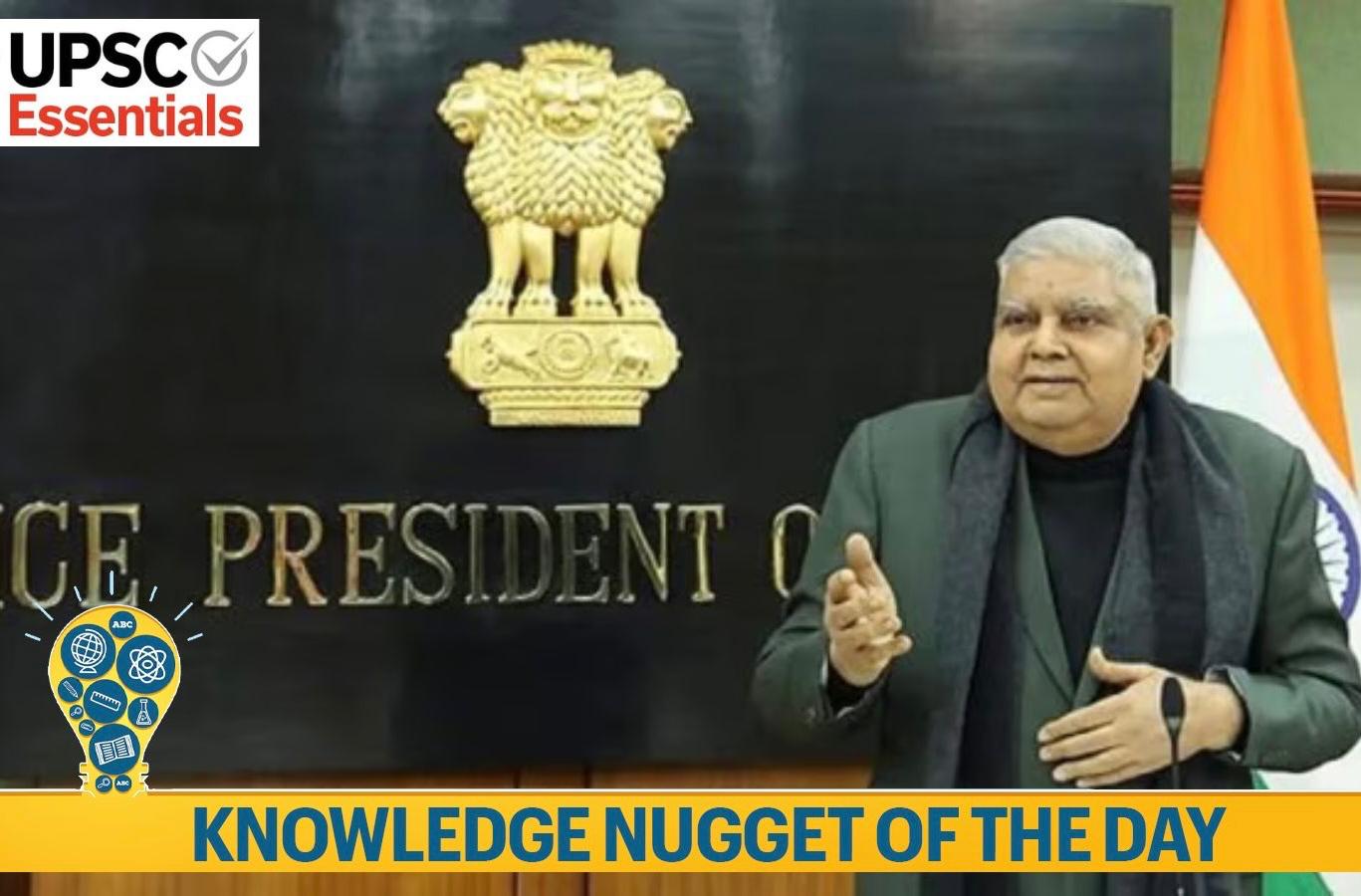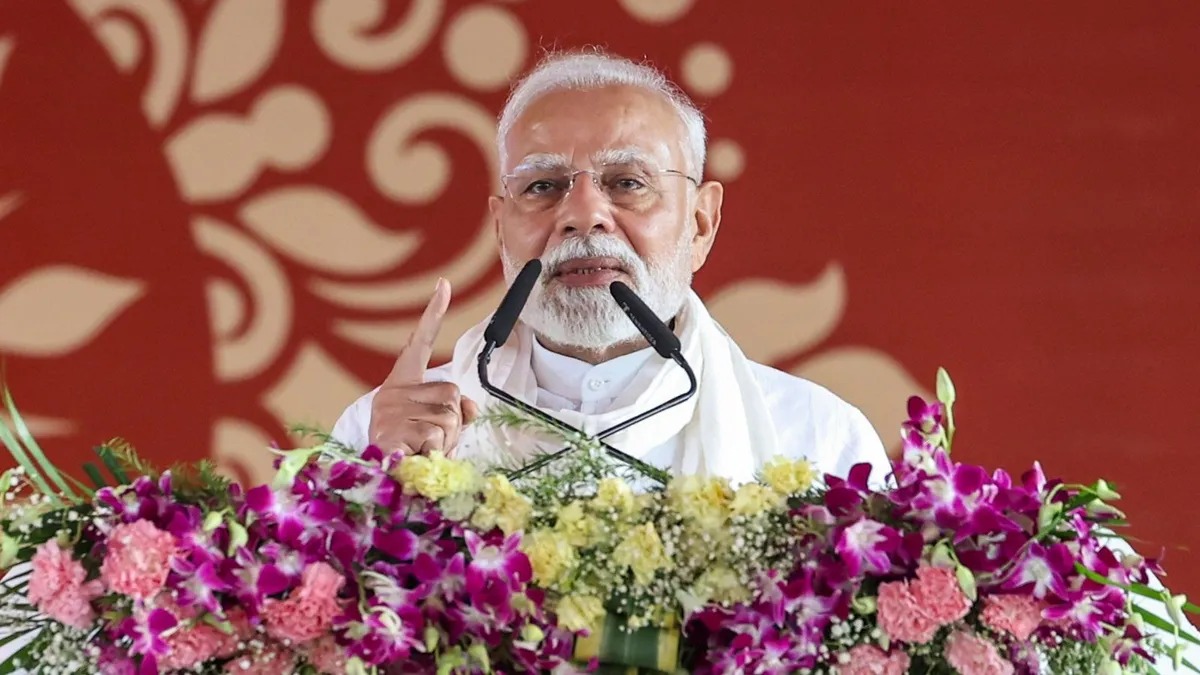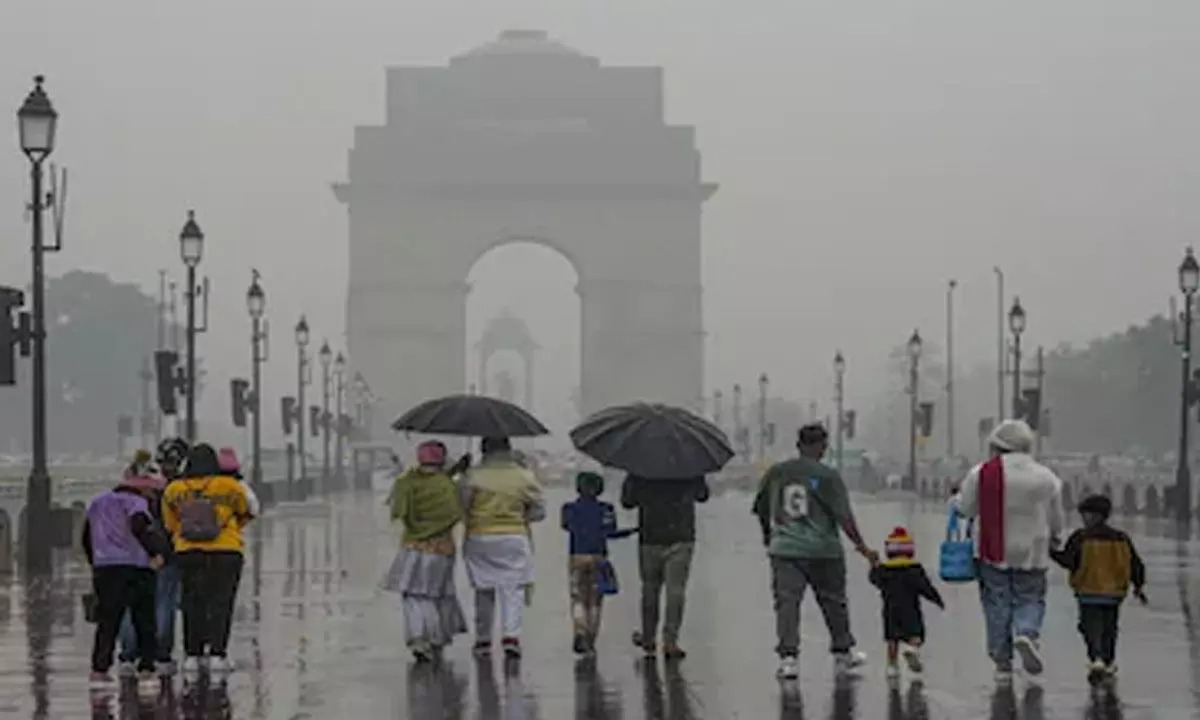 Image Source: Indian Express
Image Source: Indian Express
The Vice-President of India holds a vital constitutional position as the second-highest constitutional authority after the President. Understanding the Vice-President’s role, election process, powers, and functions is essential for UPSC aspirants, especially for questions in the polity and governance sections of the exam. This newsletter explains, in detail, why the Vice-President’s election is important, the constitutional nuances involved, and the implications you must grasp for a strong UPSC preparation.
Key Highlights: Constitutional Significance and Role of the Vice-President
The Vice-President is the ex-officio Chairman of the Rajya Sabha (the Upper House of Parliament). In this capacity, the Vice-President controls the legislative functioning, ensures adherence to parliamentary rules, and maintains order during the Rajya Sabha sittings. This role is comparable to the Speaker’s position in the Lok Sabha (Lower House).
Under Article 63 of the Indian Constitution, the office of Vice-President is established as a constitutional post with a five-year term. The Vice-President can hold office beyond the term until a successor takes charge, ensuring continuity.
Crucially, the Vice-President acts as the Acting President in case of a vacancy due to the President’s resignation, death, removal, or inability to discharge duties (Article 65). The Vice-President’s tenure as Acting President lasts a maximum of six months, during which new Presidential elections must be held.
The Vice-President can be removed by a resolution passed by the Rajya Sabha by a majority and agreed to by the Lok Sabha, with a notice period of at least 14 days.
Why the Election Process is Unique and Important
The Vice-President is elected by an electoral college consisting of all Members of Parliament—both elected and nominated—from the Lok Sabha and Rajya Sabha (Article 66). Unlike the Presidential election, Members of State Legislative Assemblies do not participate in this election.
The voting follows a proportional representation system by means of a single transferable vote and is conducted by secret ballot. This ensures a fair and representative electoral process, highlighting the federal parliamentary nature of the Indian polity.
The election carries immense political significance as it reflects the numerical strength and alliances within Parliament, making it a critical exercise in parliamentary democracy.
Candidates must be Indian citizens, at least 35 years old, qualified to be Rajya Sabha members, and must not hold any “office of profit” under the government.
Relevance to UPSC Exam Preparation
The Vice-President’s election and functions are frequent topics in UPSC prelims and mains exams. Questions may cover eligibility criteria, electoral college composition, voting mechanism, removal procedures, and constitutional roles.
The Vice-President’s position as the Rajya Sabha Chairman involves understanding parliamentary procedures, the anti-defection law, legislative processes, and the role in maintaining democratic decorum.
The contingency role as Acting President introduces candidates to emergency constitutional provisions, succession protocols, and the interplay between the Parliament and the executive.
Current affairs related to recent elections, resignations, or controversies surrounding the Vice-President provide excellent fodder for analytical questions in the UPSC exam.
Additional Constitutional and Political Aspects
While the Vice-President generally performs legislative and ceremonial duties under normal circumstances, the office becomes crucial during political transitions, presidential vacancies, or constitutional crises.
The impartiality expected from the Chairman of Rajya Sabha necessitates a deeper understanding of parliamentary democracy, making the Vice-President’s role pivotal in safeguarding the sanctity of the Upper House.
The Vice-President’s election process and office exemplify the checks and balances embedded in the Indian Constitution, providing candidates with insights into the federal and parliamentary structure.
Summary
Understanding the Vice-President’s election is critical for any UPSC aspirant because it encompasses fundamental constitutional provisions, parliamentary procedures, and political dynamics. The Vice-President’s dual function as Rajya Sabha Chairman and Acting President showcases the office’s strategic importance within India’s democratic framework. Mastery of this topic not only aids in scoring well in polity-related questions but also helps comprehend India’s governance at its core.
Sources: Manorama, Indian Express
Advertisement
Advertisement




